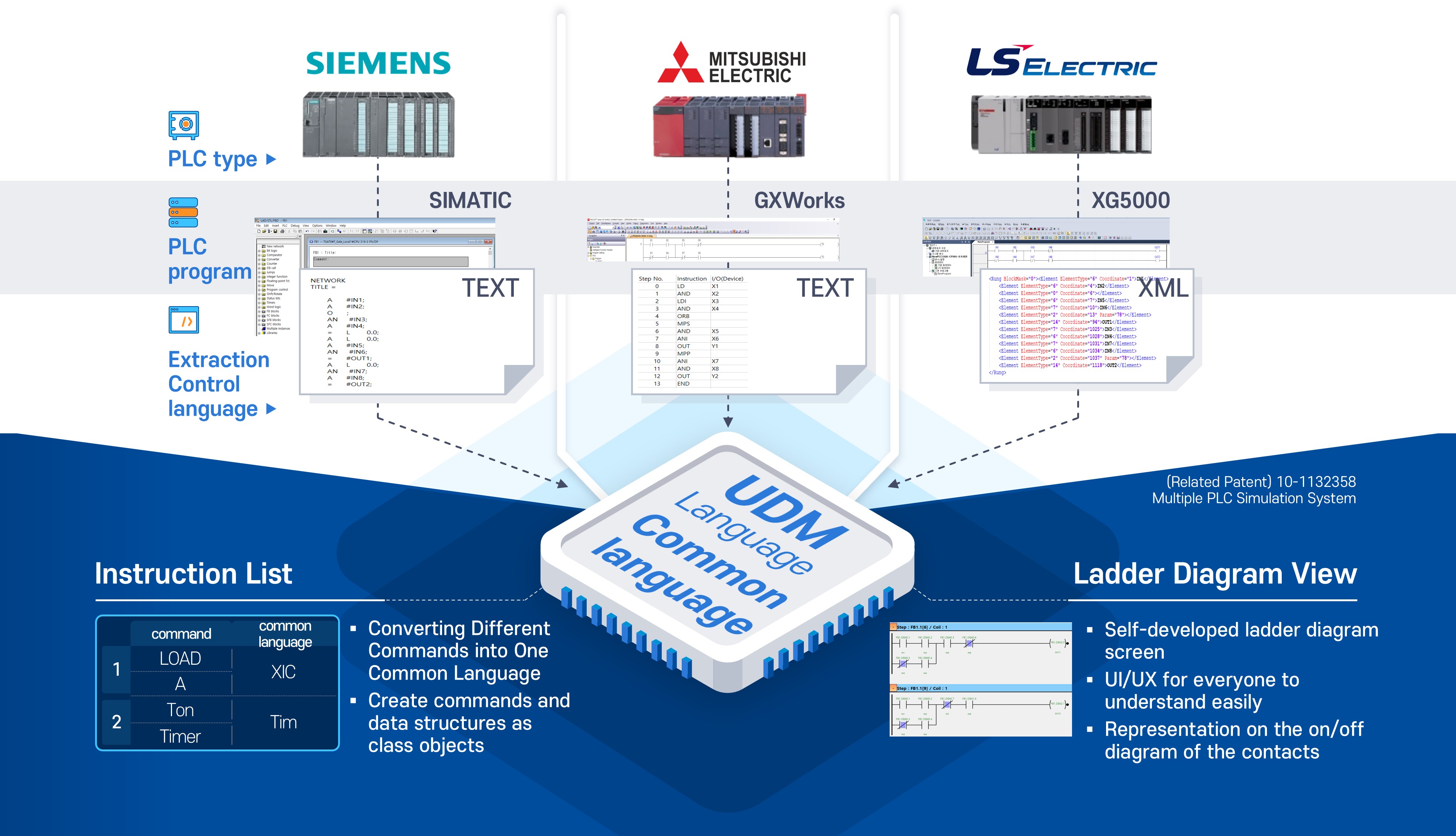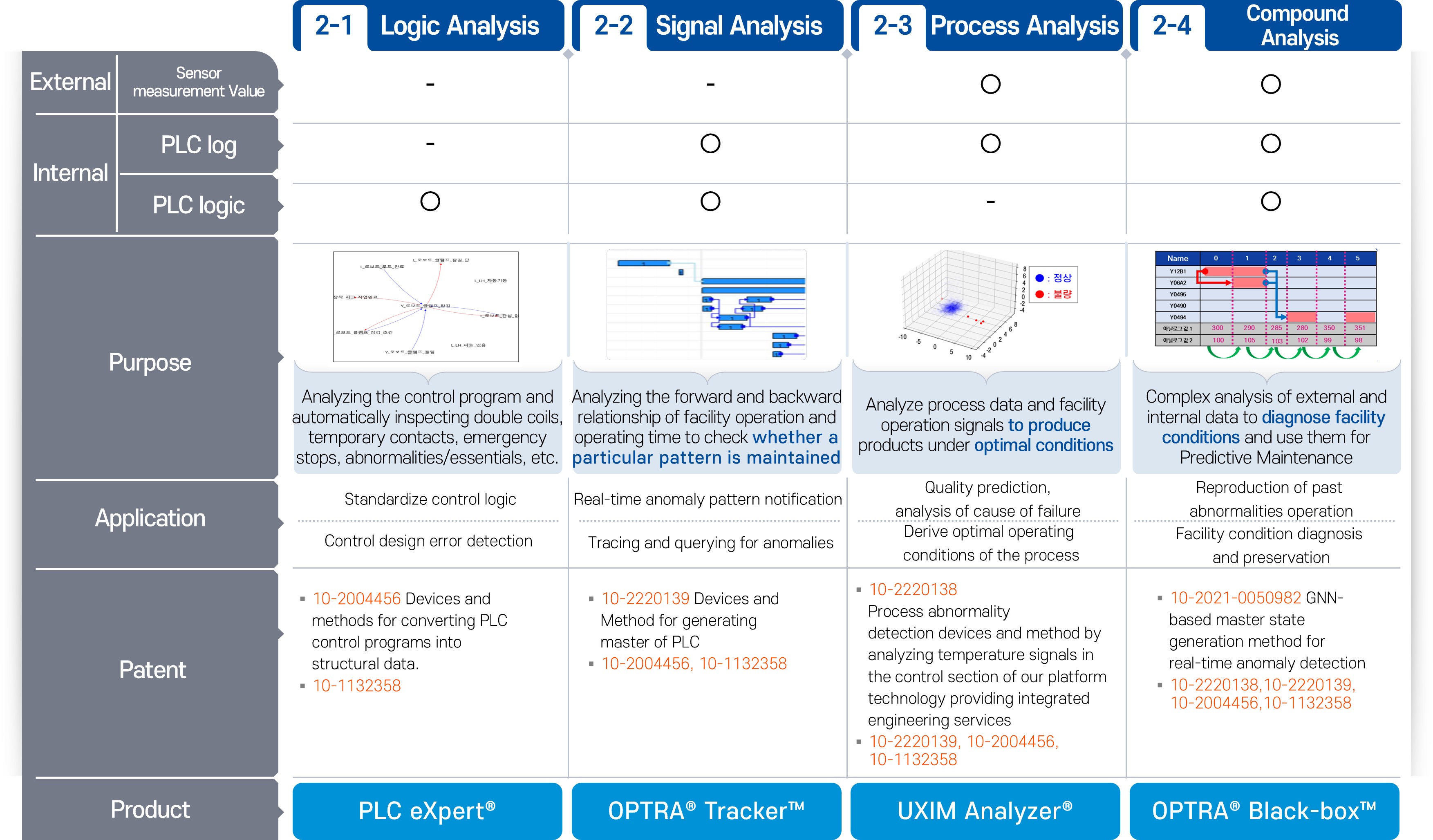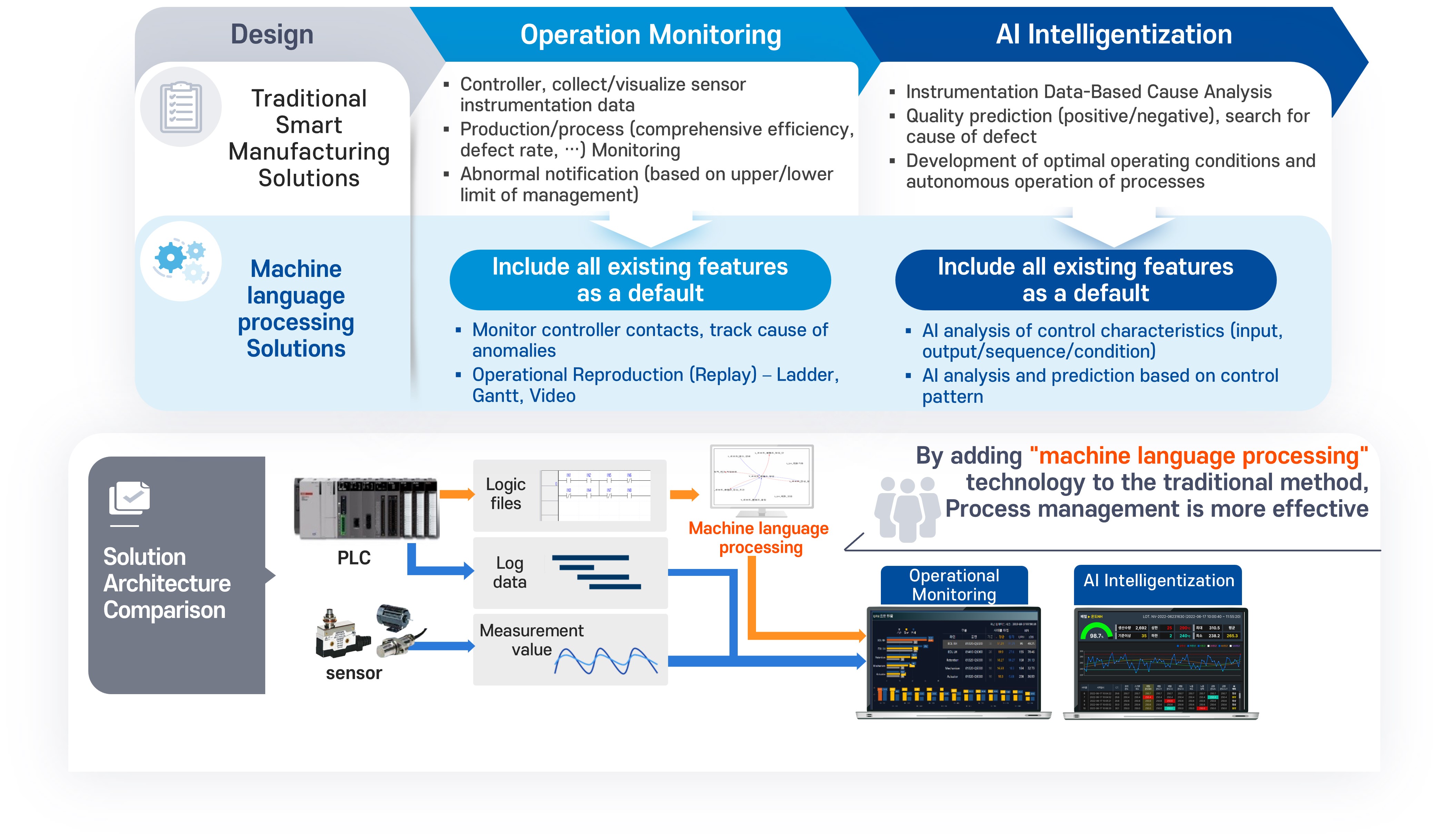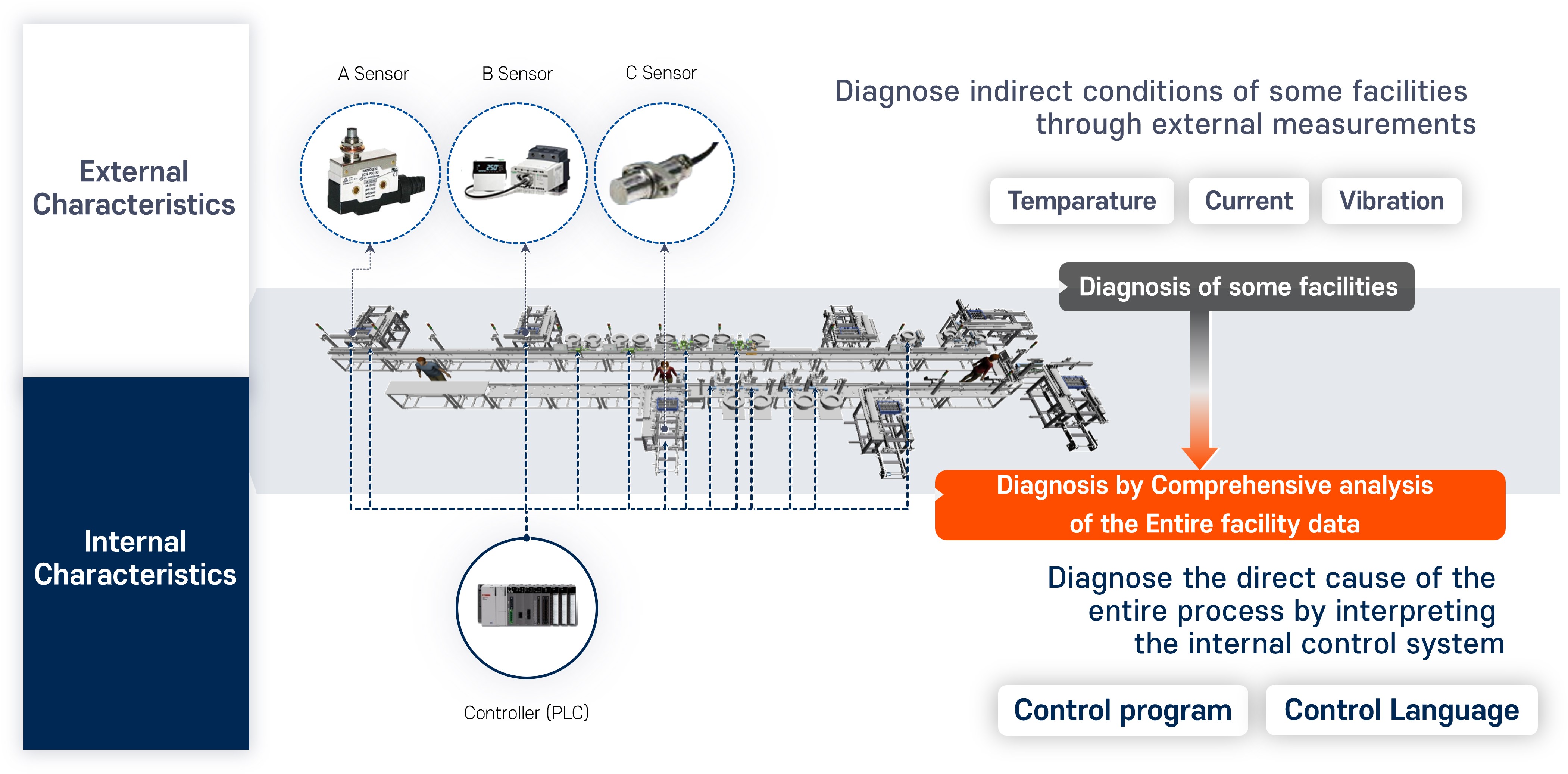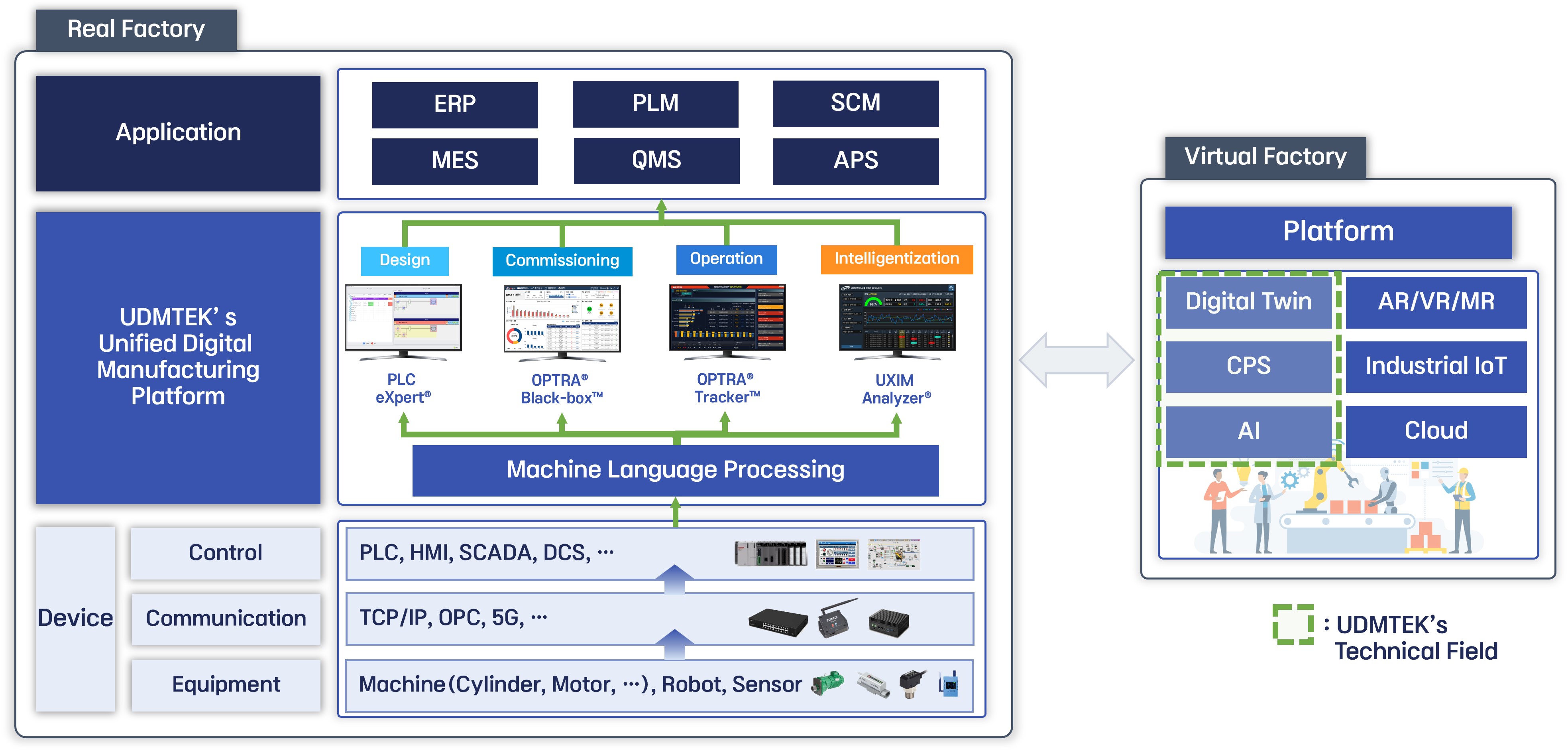Digital twin in a smart factory
Just as human-born children grow up and accumulate knowledge, the factory now and in the future will learn data and the factory will build up intelligence on its own. The digital twin is a theoretical model in which the same factory that exists in the cyberspace of the same shape, not the actual virtual factory, and the same factory that exists in the process of evolution, grows complementary to each other while experiencing a common experience The “systematic linkage” of twins is the keyUDMTEK CEO Wang GI Nam said, “It will vary depending on how you draw a virtual factory, but basically, the twin is a “life”. It is a very complicated matter to think about how to build two living twin factories. This is because there are many machines, software, and workers in the actual factory, and the virtual factory must also reflect this. The way to implement a virtual factory can be expressed by creating a simulation, or another method can be used. If the two factories are closely interlocked and complement each other, the intelligence will increase as the factory operation period increases.” “In the digital twin, the virtual factory and the real factory do not have an integrated architecture. Evolution will take place as it continues to become intelligent. When the factory changes, the virtual factory must also change and help each other. Now, it cannot be said that the virtual factory and the actual factory have been fully integrated and have a complementary relationship. I look forward to it,” he added. UDMTEK, a company established in 2007, has developed integrated digital manufacturing simulation software, application software, analysis programs, and equipment, and has been supplying it to leading companies in the domestic and overseas display, automobile, semiconductor, shipbuilding, and steel sectors. It is also participating as a supplier of smart factory supply projects promoted by the public-private joint smart factory promotion group. Data interpretation, the first step in improving corporate competitivenessIn our proverb, there is a saying, ‘It is a treasure when a ball is standing and even a horse is pierced.’ After creating a smart factory, to fully utilize the capabilities of the factory, it is necessary to properly use the pouring data. In the opposite case, it's just ‘a pearl on a pig's neck.’ Looking at the collected available data, it can be said that the purpose was achieved only when workers and managers were able to increase productivity and improve the quality of the factory.Real factory and virtual factory with the concept of digital twin The field where UDMTEK's technology is concentrated is the technology that analyzes the control program that occurs.CEO Wang GI Nam said, “There are more data generated in the factory than we imagined. This is because even a single machine performs thousands of operations per second. Therefore, control program analysis is necessary to grasp the meaning within this. Even if big data is accumulated, it is not easy to become knowledgeable. Therefore, it is necessary to analyze and structure the data, and the necessary technology for this is the control program analysis technology. This is called reverse engineering modeling of the control program. This is to interpret the data generated in the complex control program of the factory in a form that can be generally understood and link the data on the history trace. "The reverse engineering analysis and modeling technology of the control program plays a role of interlocking and providing all static and dynamic information in order to understand the dynamically changing factory's past operation status from a control point of view.” “Interpreting the information obtained through the digital twin is very useful in finding the cause of problems in the factory. In the past, if only large defects could be found, the cause of the occurrence of subtle problems can be clearly identified. Several factors that affect the quality can also be made to understand in detail as a result, may increase the production to shorten the time chosen and will be able to increase the company's competitiveness by improving the quality, "he added. SMEs should consider using a cloud network.Even if it is decided to apply smart factories and digital twins to factories, the proportion of support for the smart factory distribution expansion project supported by the government is up to half, and SMEs are bound to hesitate to invest in the other half of the cost and professional manpower.CEO Wang Gi-nam said, “Considering the financial situation of SMEs, building a smart factory using the cloud can be a breakthrough that opens the breath of business for companies. This is because it has the advantage of not hiring a separate IT manpower or incurring additional equipment purchase costs such as storage. Basically, when the telecommunications infrastructure is in place, small and medium-sized businesses will also have a foothold to implement digital twins.”From this year, UDMTEK also plans to expand the method of supplying CPS solutions to large and leading companies from this year to provide cloud-based solutions and equipment to SMEs. 김원정 기자 vuswlq@kidd.co.kr 제조기업 강국이 되는 그날까지, 공장자동화 스마트팩토리에 대한 뉴스를 기획·심층 보도하겠습니다
2021/03/09
